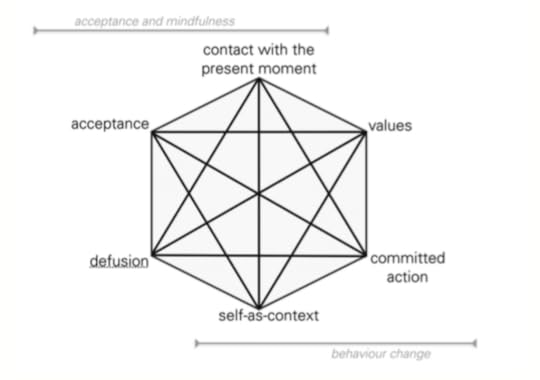Week 4, Day 4 (Day After Christmas Day): Acceptance
I have learned how to be content in any circumstance. I know the experience of being in need and of having more than enough; I have learned the secret to being content in any and every circumstance, whether full or hungry or whether having plenty or being poor. I can endure all these things through the power of the one who gives me strength (Philippians 4:11-13).
I’ve already mentioned one of the four immeasurables of Buddhism: lovingkindness. The other three are
universal compassion: feeling the suffering of other beings (and wishing to alleviate it).universal joy: celebrating the happiness and delight of other beings.equanimity: feeling these things equally and not being perturbed. Remaining steady regardless of circumstance and treating other beings equally.Equanimity is not a state of indifference. It’s a state of caring deeply for yourself and others, balanced with an awareness that everything is temporary. Someone who possesses equanimity may feel the depths and heights of emotion, but they are not overwhelmed by it. They’ve broadened their capacity to feel. They can “hold space” for their own emotions and others’. They accept what they feel and do not try to minimize it, inflate it, or push it away.
In the bible passage above, Paul is describing an acceptance that leads to equanimity. He says he can accept whatever comes by adopting the attitude of Christ. As someone who experienced shipwreck, imprisonment, ecstatic visions, and loving community, he was able to take it all in and receive it with gratitude. One verse above is often taken out of context and misread as an individualistic battle cry: “I can do all things through Christ who strengthens me!” But I think the CEB translation is better here. Paul can accept whatever comes his way with a peace that passes understanding (which I’ll write about tomorrow).
 Hexaflex model of Acceptance and Commitment Therapy, from Hulbert-Williams et al. (2016).
Hexaflex model of Acceptance and Commitment Therapy, from Hulbert-Williams et al. (2016). “Acceptance” doesn’t mean you agree with injustice or are indifferent to pain (which would go against “universal compassion”). Acceptance is simply making a distinction between what we can and cannot control, welcoming feelings and thoughts as responses to our situation without buying into them completely. We have more capacity for acceptance when we are intentionally present to the moment, recognizing that everything—including our own consciousness—is changing.
Christmas contains such highs and lows. Families gather to celebrate, but they can also open old wounds. People talk about the arrival of Christ but also mourn deaths and the absence of loved ones. Communities gather, but many people feel profoundly, existentially alone even when surrounded by people. Even if you have had an emotional or spiritual high during Christmas, the days or weeks after can leave you feeling depleted.
It is a good time to practice acceptance.
I’m including acceptance as a gift and gateway of consciousness because it can help bring us to the present moment, to awareness of all our thoughts and feelings. As we become more aware of our own awareness, we notice our tendency to flee pain and pursue pleasure. We gain a little space to make better self-directed choices instead of just reacting to the crisis or unpleasantness of the moment.
Prayer: Sustainer of All Life, help me accept the things I cannot change, knowing that this equanimity will help me to be more effective in changing what I can. Amen.



